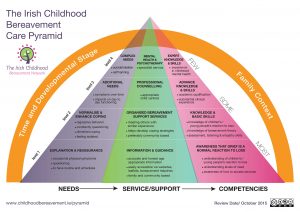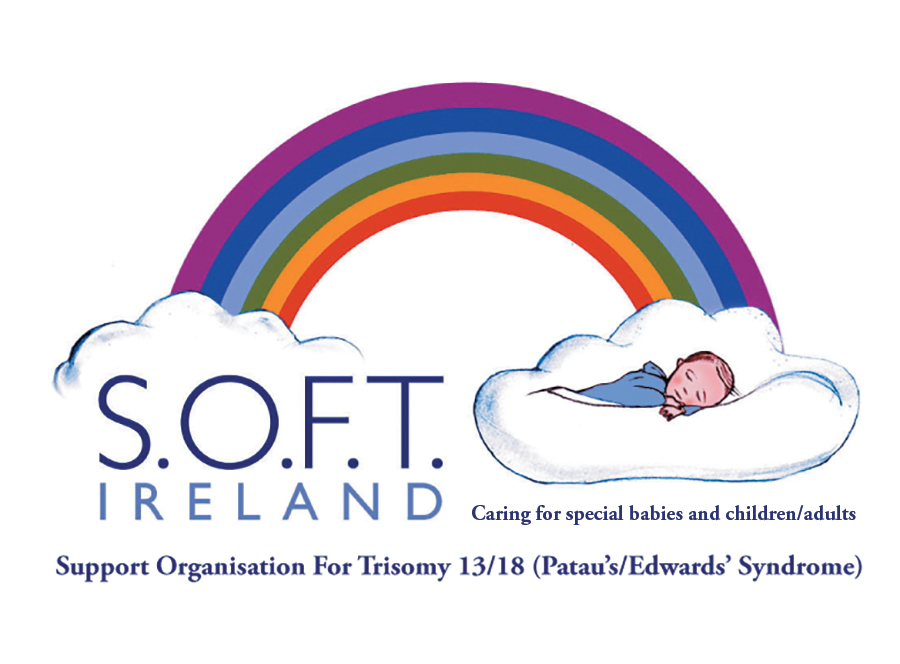Why Our Baby? CHILDREN AND BEREAVEMENT
The death of a baby before, during or shortly after birth is a major bereavement for the whole family. It has an impact on children who were looking forward to having a new brother or sister and also on children born after a baby has died.
Children are always affected by a death in the family. Each child will grieve differently, depending on their age, maturity, personality, and experience. Even very young children will realise that something is happening in their family.
Each family and each child are different. Therefore, there is no one right way to talk to a child. What you will say will depend on the following; the child’s age, their cognitive ability to understand and the questions they ask. As a general rule, it’s best to be open and honest about what has happened. Even very young children usually sense when something is wrong. If they are not told what it is they may be frightened and may feel that they could make matters worse if they ask questions.
Various problems may emerge with your children. For example some children may develop vague physical symptoms of feeling unwell. Others may develop stomach aches, headaches, or have episodes of bed-wetting, tantrums or tearfulness. At school a child may not progress as normal, be disruptive in class or have difficulty concentrating. Other children can become sullen, withdrawn, and do not communicate well with their parents. On the other hand, your son or daughter may adopt the role of being “perfect” and cause no problems.
Like adults, children of any age are likely to experience a range of feelings including shock, disbelief, sadness, anger, guilt, resentment and fear. These feelings do not come in any particular order or at any predictable time. Depending on their age, children may not be able to put their feelings into words. In addition, children may also be as upset by the changes they see in their parents as they are by the death of an expected brother or sister. They may feel doubly bereaved. This doesn’t mean that you should try to hide your grief as children need to know that it’s ok to cry and feel upset, sad or angry. Telling children that they are or should be brave or shouldn’t cry may lead them to hide their feelings, which can cause problems later on. It is important to reassure the child that the death was nobody’s fault and that nothing they did or thought made the baby die.
In the beginning the child may not accept that their baby brother or sister has died. In time the child will come to accept that he/she will not return. Finally, comes the acceptance of the loss and a letting go of the deceased. At this point children will reinvest more in their lives, although there may be upsets relating to the death.
Older children and adolescents tend to mask their feelings and their grief can become an unhealthy burden. They may worry about death in general, their own death and that of their parents. Like adults, they search for a meaning for death. Adolescents may find it difficult to communicate the grief they are feeling with their parents but may do so with a friend. If the older child or adolescent has been a caregiver, the sense of separation will be greater.
Bereaved children have four basic needs:
- Information
- Reassurance
- Involvement
- Expression of feelings.
Although you may fear for the psychological well-being of your child, research has shown that children are not necessarily damaged by the experience of death, provided they have correct information, support and understanding shown to them. It is important for children to be involved in all that is happening when their brother or sister dies. They will gain comfort in the future from knowing that they were important enough to be involved. In fact, children who do not have the opportunity to be involved or discuss what is happening may later have regrets.
SUGGESTIONS FOR DEALING WITH BEREAVED CHILDREN
It is often easy to misinterpret the signs and think your child is not grieving and does not need special consideration. For example, children will often resume play and other activities in a seemingly carefree manner. Keep the following points in mind when dealing with bereaved children whether they appear to need your help or not:
- Talk to your children openly about the death of their brother or sister and use the baby’s name.
- Speak openly about your own grief and do not be afraid to cry in front of your children.
- Use proper terminology when speaking to children. For example, do not say “your sister has gone to sleep“, instead say that she has “died”. Otherwise your child may become fearful of sleeping.
- Do not confuse religious and medical reasons. Do not say, for example, that “God wanted a little angel”. Your child may be afraid that God will want him or other family members.
- Involve your children in the funeral service even at a young age. Explain the procedure clearly to them and the importance of their role. They too need to say “goodbye” to their brother or sister.
- Children often feel insecure after a bereavement. They need love, support and companionship. Provide a sense of security by having the same routine and rules as existed previously. A little special time with each child or a family day out will help.
- Allow your children to cry and express their emotions. They can be encouraged to express their feelings by drawing or writing.
- Inform the teacher at school and check from time to time if there are any problems.
Parents may be so preoccupied with their own grief that they may not be aware of the unhappiness of their children.
Sometimes, because their own grief is so intense, it may be appropriate to ask someone close to the child, i.e. close friend or relative to take on a supportive role. Your family doctor, health visitor, or public health nurse will understand what you are going through as a family and can offer support and advice.
Do not feel guilty because you cannot meet all the needs of your child. Remember a child has his or her own resources and eventually you can all be strengthened by the experience.
Ways to Involve Children
These days the majority of families include their children in what happens after the death. There is a variety of ways in which you could involve your children and help them feel part of what is happening around them. You could ask if your child would like to come to the hospital to see the baby and say goodbye. If you are going to be bringing your baby home, you could explain that this is so that the whole family can say goodbye together. Depending on your child’s age, you may wish to take them to the funeral and encourage them to participate in the service should they so wish i.e. recite a prayer or reading or chose a favourite song or hymn. It is helpful to explain that a funeral is a special time to think about the baby and say goodbye. That means that people will feel especially sad and may cry
Many parents collect keepsakes of their baby, which can be stored in a memory box. Children may wish to add something of their own to the box. Depending on their age, they could do a drawing or a painting, or write a poem or letter. Some children might want to give the baby a cuddly toy, which could be placed in the coffin or kept in the memory box. They may also like to have a photograph taken with the baby.
After the funeral, you may wish to take your children to visit their sibling’s grave, or a special place where you scattered their ashes or planted memorial trees. Children may want to bring something special to leave on the baby’s resting place.
Anniversaries, Memorial Services and Family Celebrations
Important dates such as the anniversary of the date when the baby was born, died or due to be born can be especially sad for parents. It is advisable to talk to children in advance of the above so that they are aware that you may be sad again for a while. Be aware that important dates and the lead up to them may trigger feelings of grief for children too.
Many families mark birthdays, anniversaries or other special occasions by lighting a candle, baking a cake for the baby or visiting a special place such as the baby’s grave or the place they scattered their ashes. If you celebrate Christmas, hanging a stocking for the baby or putting ornaments on the tree in their memory are activities that siblings can be involved in.
GUIDELINES
- Share your grief with your children.
- Encourage them to share their feelings with you.
- Express your love to your family.
- Make time to listen and talk.
- Answer questions with honesty.
The Irish Childhood Bereavement Network (ICBN) was founded in 2012 to act as a hub for those working with bereaved children, young people and their families. Upon its establishment, five key priority areas were outlined:
- Support professionals to deliver high quality and accessible bereavement support;
- Signpost families and carers to a directory of bereavement support services;
- Inform the general public regarding issues involved in childhood loss;
- Advocate for bereaved children, young people and those supporting them;
- Generate new ideas and approaches to improving bereavement support for children.
In 2015 the ICBN developed the Irish Childhood Bereavement Care Pyramid. The pyramid identifies the needs of “most”, “some” and “few” bereaved children. It encourages adults who care for bereaved children to understand that, in most situations, children can be supported by providing accurate information and emotional support through their family and community. The pyramid further identifies the types of services appropriate for “some” and “few” children who have extended needs and will require support outside the home.

Further Reading:
Children’s Understanding of Death: The Irish Childhood Bereavement Network (ICBN)
Standards for Supporting Bereaved Children and Young People: ICBN
Supporting Children when a Baby has Died: A Little Lifetime Foundation
We had to say Goodbye before we even Met: Irene Teague
All Shining in the Spring: Siobhan Parkinson
SOFT UK Sibling Support Booklet (Trisomy 13/18 for Siblings)
